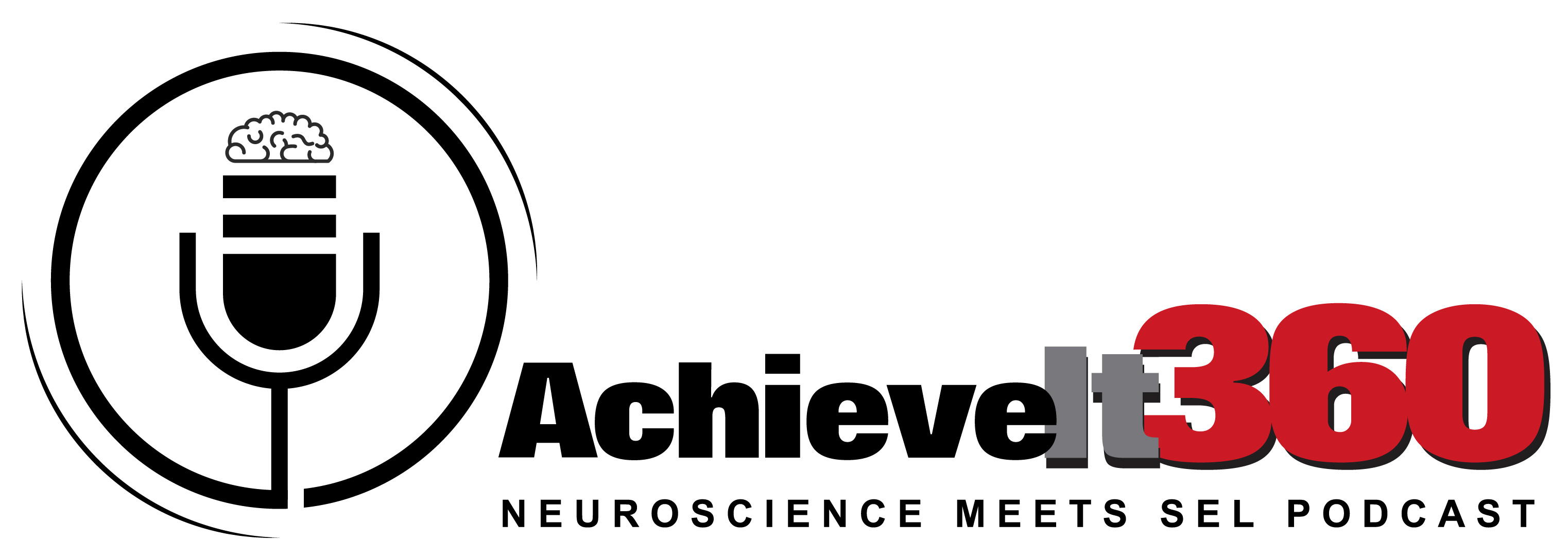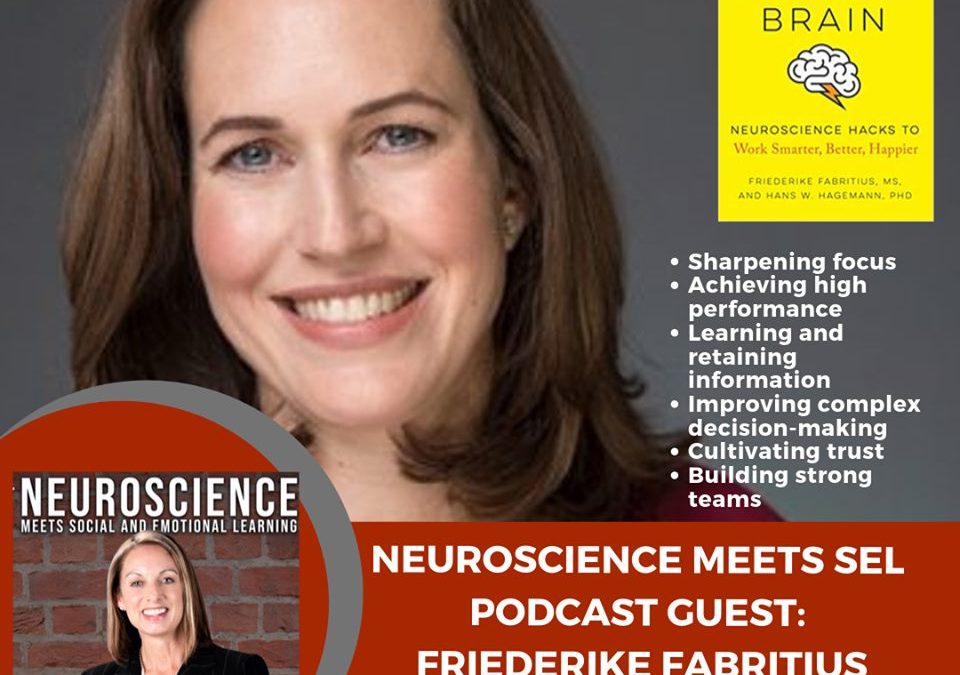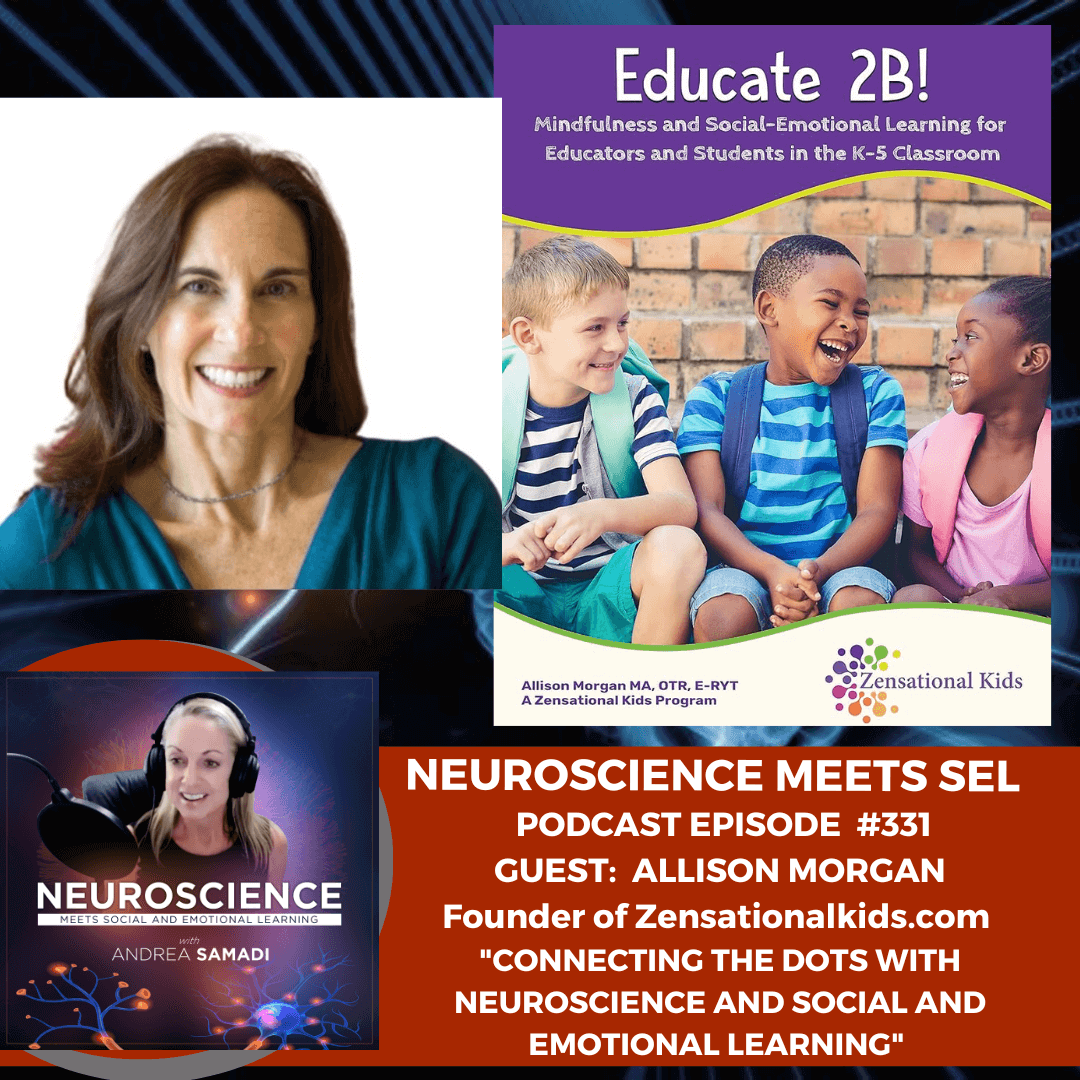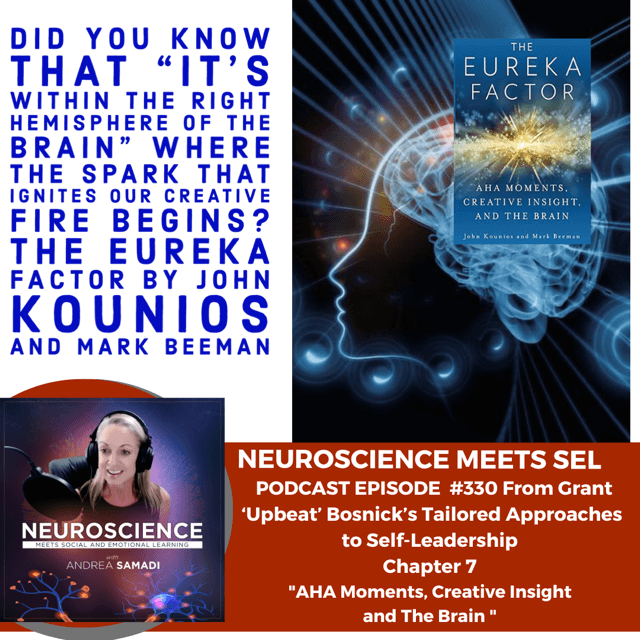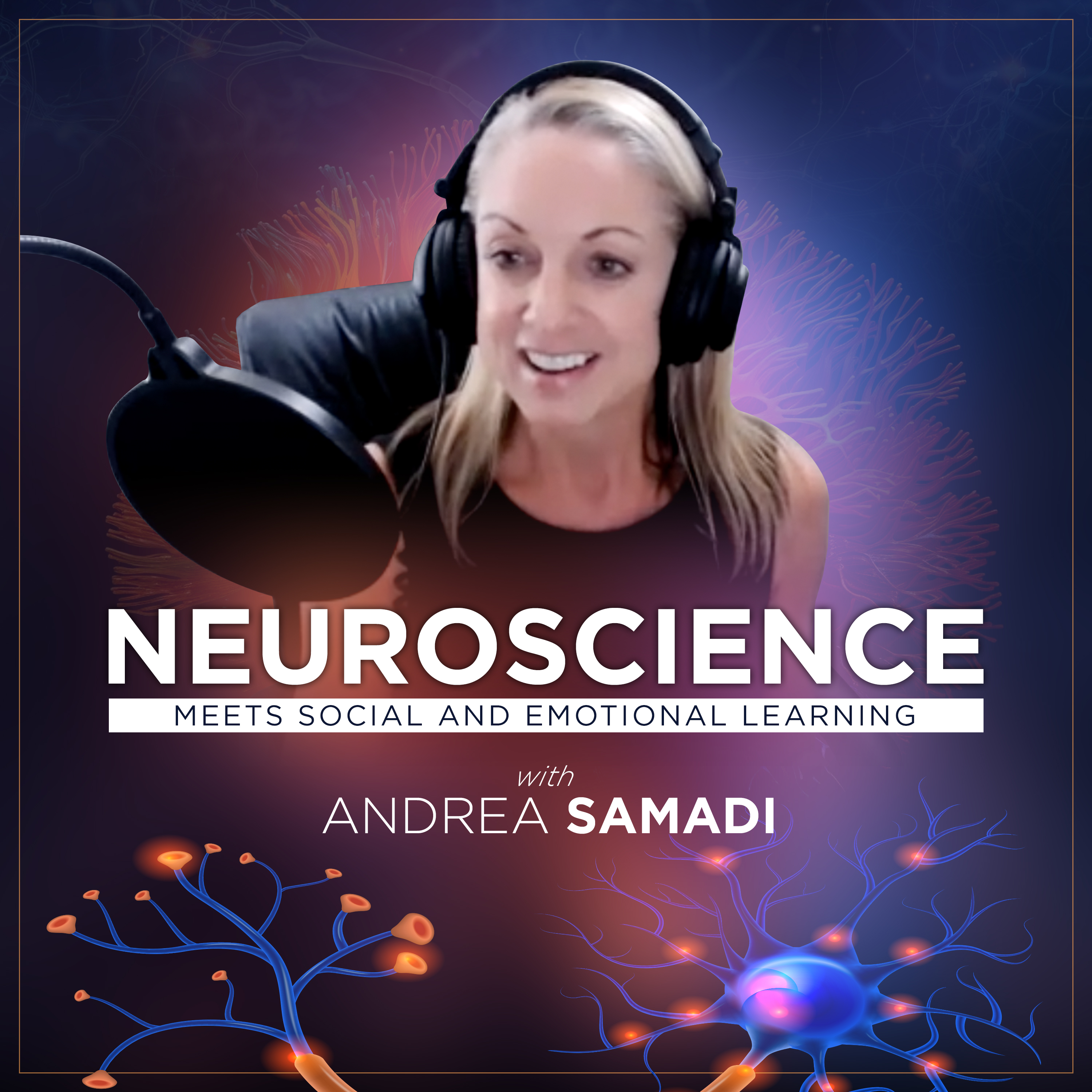This is episode #27 with a Pioneer in the field of Neuroleadership and author of the book, The Leading Brain, Friederike Fabritius,[i] all the way from Dusseldorf, Germany. You can watch the interview on YouTube here.
Welcome to the “Neuroscience Meets SEL” podcast, my name is Andrea Samadi, a former educator who has been fascinated with understanding the science behind high performance strategies in schools, sports and the workplace for the past 20 years. Today we have an inspiring speaker who I’ve been following for the past 3 years.
FRIEDERIKE FABRITIUS, MS, is a neuroscientist and pioneer in the field of neuroleadership. She trained at the Max Planck Institute for Brain Research and is an alumna of McKinsey & Company (helping organizations to create change). Friederike delivers brain-based leadership programs to Fortune 500 executives and organizations around the globe to transform how they think, innovate, and navigate change. Her book The Leading Brain: Neuroscience Hacks to Work Smarter, Better, Happier has been translated into several languages and has received numerous awards. Her most recent presentation this year was at Talks at Google[ii] where she describes the recipe for achieving peak performance.
Welcome Friederike! I am beyond excited to be speaking with you today. A warm welcome today as you join us here in Arizona, USA all the way from Germany!
I wanted to let the listeners know that I recorded an episode yesterday[iii] “Simple Strategies for Avoiding the Pitfalls of the 3 Parts of the Brain” so that today we could dive a bit deeper with our time together. If you are listening now and have not heard that episode, be sure to go back and listen to episode #26 as an overview for today.
Q1: I first found you on YouTube when I was searching for a way to understand how our neurotransmitters work in peak performance. I found this video where you explained neuroleadership[iv] just beautifully to top executives in Barcelona, Spain and how we can create peak performance[v] or that flow state we all seek for those high levels of achievement. Can you explain what we need to do to get into peak performance/flow state whether we are an employee looking for improved results in the workplace, an athlete in the field, or a student in the classroom?
Q2: What does flow look and feel like? What can we do to stay in this flow state longer to experience that increased productivity you mention in your book where productivity increases by fivefold?[vi] What is guaranteed to throw us out of flow—so that we don’t do that?
Q3: On our podcast here “The Neuroscience of SEL” we have spoken a lot about self-awareness and understanding our self so we can make the changes needed for improved results. Can you explain why some people need to be challenged in order to perform at their very best, while others need to have less challenge and less stress to do their best work, and what do these people look like in an organization so people listening can recognize what type of person they are on that performance/stress scale?
Q4: We know that the PFC is important for executive functions (like logical thinking, decision-making, or planning) and it’s the part of our brain that determines our level of success in life and with our careers. What strategies do you personally do to strengthen this part of your brain to operate at its best for these high levels of performance?
Q5: What do you think are the next most important parts of the brain for anyone to understand specifically for those who are looking to take new actions or create new habits to achieve higher levels of performance?
Q6: What about mindfulness and meditation? In your book, you mention that “mindfulness has been shown to physically change several regions of the brain in as little as 8 weeks.” Can you explain what parts of the brain mindfulness improves and how this could help people improve their results in life and at work
Q7: In your book, you mention 2 examples of people who didn’t rely on their conscious thinking brain, but they used their unconscious brain to increase the speed, efficiency and accuracy of their performance. The first example was with Sully Sullenberger’s quick thinking with his emergency landing of that plane in the Hudson River and the other was with Wayne Gretzky, who used his unique “hockey sense” to “skate where the puck will be, not where it is.” Can you explain the parts of the brain that are responsible for this gut-instinct or “expert intuition?” and maybe the difference between expert intuition vs just our wishful thinking?
Q8: I could ask you so many more questions but will stick to just one more. It’s about inhibition or the strategy we often use to hide or hold back our real thoughts or feelings about someone or a situation instead of just dealing with them openly with transparency. Can you explain why inhibition is a bad idea, what happens to the brain when we are doing this, what happens to our productivity and a better strategy for people to embrace and acknowledge their thoughts and feelings rather than hide or ignore them?
Q9: Is there anything that you think is important that I might have missed to help listeners implement some hacks for peak performance that will help them to work smarter, better, and happier?
Dr. Freiderike Fabritius it’s been such a pleasure getting to know you. I seriously could have asked you another 10 questions as I found your book fascinating! I love how it offers practical tips and short cuts that anyone can understand and then apply for improved results. The end of chapter summary section was also very helpful for a review of everything covered. For those who would like to learn more about your work they can find your book “The Leading Brain” on Amazon, or Barnes and Noble.[vii] What’s the best way for someone to reach you?
Learn more through your website at https://www.fabulous-brain.com/ , or find you on Linkedin (with your name) and Twitter and Instagram @fabulous_brain
REFERENCES:
[i] https://www.fabulous-brain.com/
[ii] Friederike Fabritius: “Fun, Fear, and Focus: The Neurochemical Recipe for Achieving Peak Performance” | Talks at Google Published Jan.15, 2019 https://www.youtube.com/watch?v=pWi-oCySuFA
[iii]EPISODE 26 “Strategies for Overcoming the Pitfalls of the 3 Parts of Your Brain” https://podcasts.apple.com/us/podcast/strategies-for-overcoming-pitfalls-3-parts-your-brain/id1469683141?i=1000454366492
[iv] Freiderike Fabritius “Neuroleadership: A New Approach” YouTube Published Dec. 11th, 2016 https://www.youtube.com/watch?v=2g4XhlLZ5ak
[v]Friederike Fabritius –“The Leading Brain: Neuroscience hacks to work smarter, better, happier” Published Sept. 29, 2019 https://www.youtube.com/watch?v=bOK612_n2Y0
[vi] Friedrike Fabritius “The Leading Brain: Neuroscience Hacks to Work Smarter, Better, Happier” (Feb.21, 2017) https://www.fabulous-brain.com/the-leading-brain (page 108)
[vii]Friedrike Fabritius “The Leading Brain: Neuroscience Hacks to Work Smarter, Better, Happier” (Feb.21, 2017) https://www.fabulous-brain.com/the-leading-brain
Podcast: Play in new window | Download
Subscribe: Apple Podcasts | RSS
